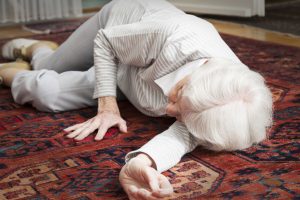 Falls can prove both costly and dangerous as you get older. Millions of older Americans fall each year, with many sustaining serious injuries such as broken bones or concussions. However, there are steps you can take to prevent falls and avoid serious complications when they do occur. You should:
Falls can prove both costly and dangerous as you get older. Millions of older Americans fall each year, with many sustaining serious injuries such as broken bones or concussions. However, there are steps you can take to prevent falls and avoid serious complications when they do occur. You should:
Stay in shape: Regular exercise provides a vast number of benefits to your health and can help you remain strong and mobile as you get older. In particular, exercises that help you improve your balance (such as Tai Chi) can significantly reduce your likelihood of falling or getting seriously injured from a fall.
Remove home hazards: A variety of hazards may make a fall more likely at home, such as clutter in your walking paths, lights that are not properly functioning, or a lack of handrails or bars in places such as your bathroom or stairs. Make sure to keep clutter out of your way, that all lights remain functioning normally in and around your home, and that you have bars and railings available where needed to help keep your balance.
Get your eyes and feet checked: Poor eyesight or conditions that affect your feet can impact your ability to move normally and remain upright. Make sure to get both of these parts of your body checked by a specialist; prescription glasses and recommended footwear can help you safely stay mobile and functional.
Review medication side-effects: Certain medications may have side-effects that cause dizziness, fatigue, or other symptoms that may affect your balance. Discuss these potential side-effects and how to manage them with your doctor or pharmacist before taking any medication.
Talk to a doctor immediately if you fall: If you fall but don’t sustain any serious injuries, you should consult your doctor immediately to determine the cause and the best ways to prevent future incidents. If you do experience a serious injury (such as head trauma), call 911.
If you’ve been injured from a fall or are at risk of falling, you can schedule an appointment with Flushing Hospital Medical Center’s Department of Physical Medicine and Rehabilitation by calling (718) 670-5515.
All content of this newsletter is intended for general information purposes only and is not intended or implied to be a substitute for professional medical advice, diagnosis or treatment. Please consult a medical professional before adopting any of the suggestions on this page. You must never disregard professional medical advice or delay seeking medical treatment based upon any content of this newsletter. PROMPTLY CONSULT YOUR PHYSICIAN OR CALL 911 IF YOU BELIEVE YOU HAVE A MEDICAL EMERGENCY.
